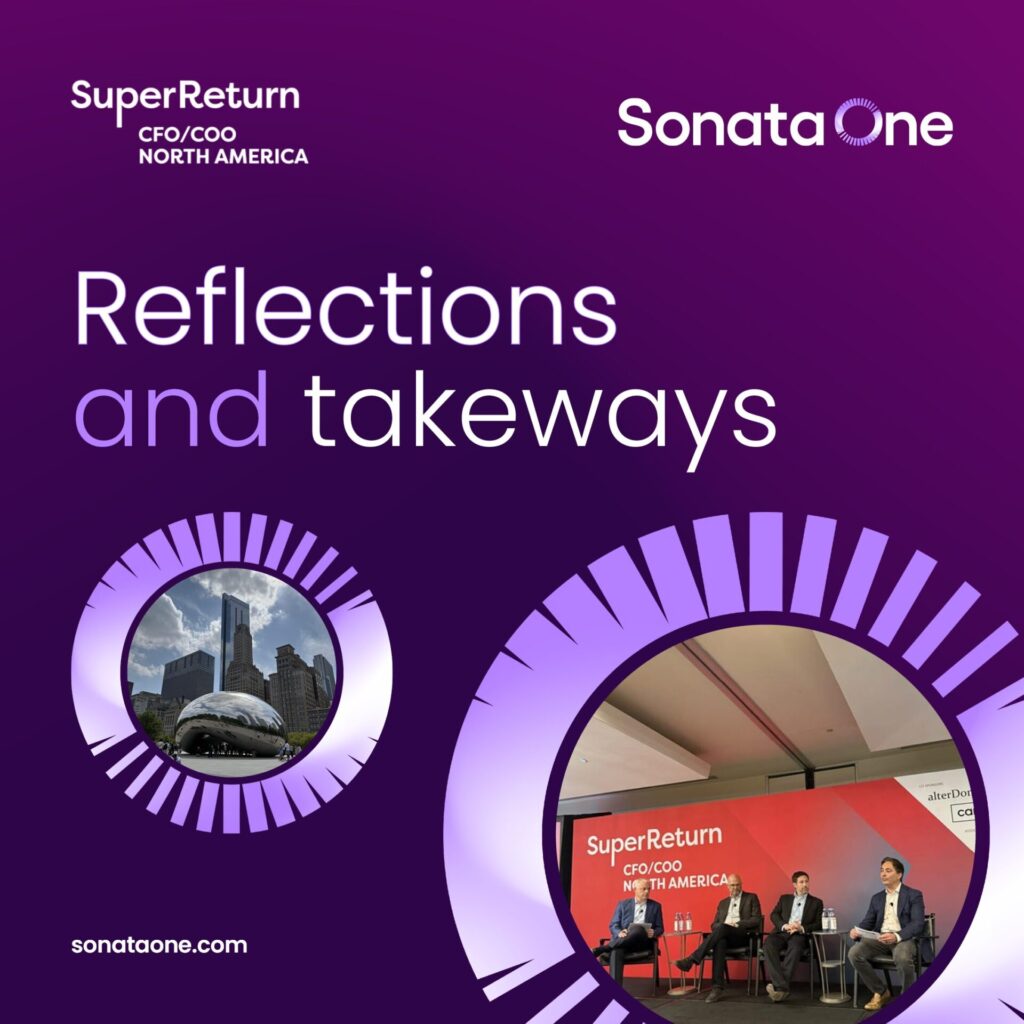Last month, Askender Ouazzani, Mark Coppin, Jason Green, and Mark Quigley represented Sonata One at the Catapult Future Foundation Bootcamp in Luxembourg.
Hosted by the Luxembourg House of Financial Technology (LHoFT), the bootcamp brought together six fintech innovators as part of the Catapult Future Foundation Program—an initiative aimed at building an industry-wide solution to the problem of secure document exchange in financial services, particularly around KYC.
They share their reflections on what proved to be a collaborative and thought-provoking week here:
Identifying a mutualised solution to shared challenges
What really sets this program apart is its emphasis on mutualisation: bringing together key ecosystem players to solve a truly shared problem. According to the Luxembourg Ministry of Finance, who back the initiative, the jurisdiction is well placed to make this happen:
“As a leading hub for financial services—ranging from international asset servicing to wealth management, listings, post-trade services, cross-border insurance and payments—Luxembourg is uniquely positioned to leverage the strengths of its financial centre ecosystem to develop shared solutions that reduce costs and drive efficiency across the industry.”
— Yuriko Backes, Former Minister of Finance
What were the core objectives?
Over the course of the week, the program homed in on the following core objectives:
- Streamlining and standardising KYC and AML processes across institutions
- Addressing inefficiencies, inconsistencies, and potential data privacy and compliance risks
Key Discussion Points and Challenges
1. Data Overload
A key theme was the importance of standardisation. With different financial institutions potentially sharing similar documents for the same customer, it will be difficult to understand what is useful and what has been authenticated already – how will one financial institution understand which document is to be relied upon in the event of conflicting information? How will this reduce the need for repetitive document authentication processes and improved customer experience? Opinions differed in the Bootcamp, however, we believe there’s a clear requirement for a central validator —alongside harmonised requirements. This kind of standardisation and centralisation of data and processes is essential for driving consistency and greater efficiency across the industry. It also safeguards the usefulness of the solution which will lead to higher adoption rates.
2. GDPR and Data Ownership
Data privacy was another major topic. GDPR makes it clear, firms can’t assume data shared with one party can be passed on to another. Putting customers in charge of their data and with whom it is shared provides a solution. That’s the principle behind our own investor passport solution—by ensuring the investor owns and controls their profile, we’re able to navigate GDPR challenges effectively while giving investors greater privacy and control over their personal information.
3. Applying KYC Data More Broadly
KYC data, if collected and authenticated to the appropriate standard, has value far beyond customer onboarding. In a tightly interconnected financial hub like Luxembourg—especially in the asset management space —there are clear opportunities to reuse approved KYC data across different processes and entities.
One such potential use case touched on during the bootcamp was the huge volume of SPVs currently operating in Luxembourg. Administering tax returns across such volume is operationally burdensome and where the same service providers often support multiple managers and investors, repeated manual data requests make little sense. There’s therefore a clear opportunity to share verified KYC data across the chain, for instance using it to pre-populate tax returns—a solution we’re already delivering for clients at Sonata One.
Why we took part
We’re currently growing our presence in Luxembourg and expect to be regulated there early next year. Being a part of the Bootcamp was a fantastic opportunity to engage with, and contribute to, Luxembourg’s thriving and collaborative financial community.
Building an industry-wide solution is a natural fit for Sonata One as this is very much our aim as the private funds clearinghouse. It was exciting to see how the tried and tested solution we’ve developed for private markets can be applied to deliver benefits to the financial services industry more broadly.
What’s next?
The Bootcamp steering panel is in the process of reviewing which of the six participants will move forward to the next stage. Naturally, we’d love to be part of that journey—but above all, we’re looking forward to the industry-wide solution that will emerge.
What makes the Catapult Program special?
Too often, industry groups gather to share ideas only for the conversation to stay in the room. The Catapult Future Foundation is different. It opens the doors, invites outside perspectives, and brings competitors together to collaborate—all with a single goal: creating a solution that works for all stakeholders, in the real world, not just in a sandbox.
This is mutualisation in action—and we’re excited to see what comes next.

